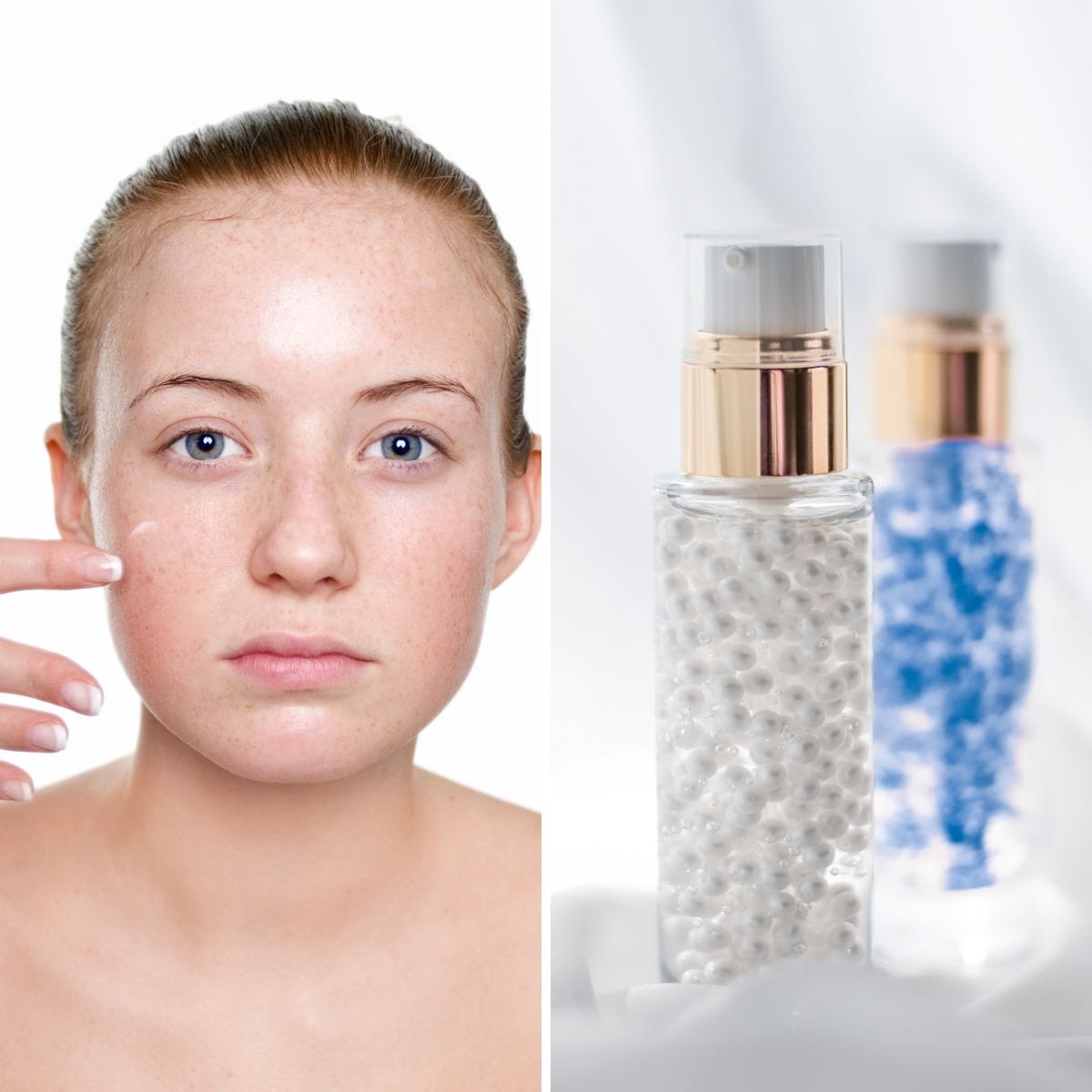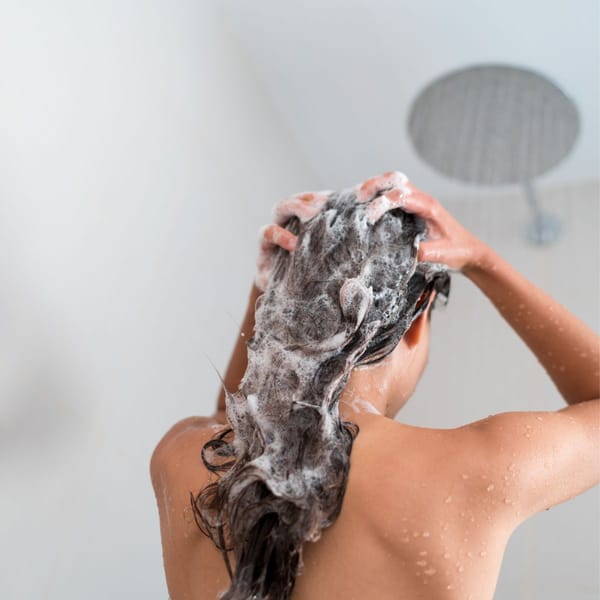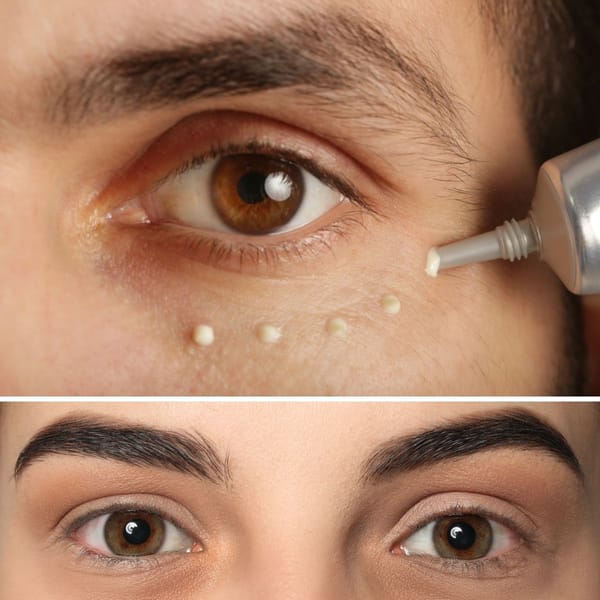Key Takeaways:
- Silicone-based primers are excellent for blurring pores and creating a smooth canvas, but they may not be ideal for all oily skin types.
- Water-based primers are generally more suitable for oily skin, providing a lightweight feel and reducing excess oil.
- Understanding your skin type and the ingredients in your primer can make a huge difference in your makeup routine.
Introduction
When it comes to choosing the right primer for oily skin, the debate between silicone-based and water-based primers is a hot topic. Both types have their unique benefits and drawbacks, making it essential to understand which one suits your skin type better. In this article, we'll dive deep into the world of primers, exploring the pros and cons of silicone-based and water-based options, and help you make an informed decision.
Understanding Silicone-Based Primers
Silicone-based primers are popular for their ability to create a smooth, flawless canvas for makeup application. Silicone based foundation often requires a compatible primer for best results. These primers often contain ingredients like dimethicone and cyclopentasiloxane, which help to blur pores and fine lines. This makes them a favorite among professional makeup artists and individuals looking for a polished look.
However, silicone-based primers can sometimes be a double-edged sword for those with oily skin. While they do an excellent job of blurring imperfections, they can also clog pores if not removed properly. This can lead to breakouts and exacerbate oily skin issues. Therefore, it’s crucial to thoroughly cleanse your skin at the end of the day to avoid any potential problems.
The Benefits of Water-Based Primers
Water-based primers are generally more suitable for oily and acne prone skin types. These primers are lightweight and often contain hydrating ingredients like hyaluronic acid, which helps to keep the skin moisturized without adding excess oil. Water-based primers are less likely to clog pores and are less comedogenic, making them a safer and more gentle option for those prone to acne.
Another advantage of water-based primers is their ability to provide a natural, dewy finish. Unlike silicone-based primers, which can sometimes feel heavy on the skin, water-based options offer a breathable layer that feels comfortable throughout the day. This makes them ideal for individuals with combination skin, as they help to balance oil production while keeping the skin hydrated.
Key Ingredients to Look For
When choosing a primer, it’s essential to pay attention to the ingredient list. For silicone-based primers, look for ingredients like dimethicone, cyclopentasiloxane, and disodium stearoyl glutamate. These ingredients help to create a smooth, even surface for makeup application and can be particularly beneficial for blurring pores.
On the other hand, water-based primers often contain ingredients like hyaluronic acid, butylene glycol, and magnesium sulfate. These ingredients help to hydrate the skin and control oil production, making them ideal for oily and combination skin types. Additionally, water-based primers may include natural, nourishing ingredients like argan oil and shea butter, which provide extra hydration without clogging pores. Identifying the primer as silicone-based or water-based can often be done by checking if dimethicone or hyaluronic acid is listed as the second or third ingredient, respectively.
The Role of Skin Type
Your skin type plays a significant role in determining which primer is best for you. If you have oily skin, you may find that water-based primers work better to control excess oil and provide a lightweight feel. These primers help to keep your skin looking fresh and matte throughout the day, reducing the need for frequent touch-ups.
For those with combination skin, a water-based primer can help to balance oil production in the T-zone while keeping the rest of the face hydrated. However, if you have dry skin, you might benefit more from a silicone-based primer, as it can provide a smooth, moisturized look that helps to blur fine lines and imperfections.
Silicone-Based Foundations: Pros and Cons
Silicone-based foundations are known for their long-lasting wear and ability to create a flawless finish. These foundations often contain ingredients like dimethicone and cyclopentasiloxane, which help to smooth the skin and blur imperfections. This makes them a popular choice for special occasions and professional makeup applications. Similarly, oil based foundation may not be suitable for everyone, especially those with oily skin, as it can exacerbate issues by feeling greasy or heavy.
However, silicone-based foundations can sometimes feel heavy on the skin, especially for those with oily skin types. They may also contribute to clogged pores if not removed properly, leading to breakouts and other skin issues. Therefore, it’s essential to thoroughly cleanse your skin at the end of the day to avoid any potential problems.
Water-Based Foundations: Pros and Cons
Water-based foundations are generally more suitable for oily skin types. These foundations are lightweight and often contain hydrating ingredients like hyaluronic acid, which helps to keep the skin moisturized without adding excess oil. Water-based foundations are less likely to clog pores, making them a safer option for those prone to acne.
Another advantage of water-based foundations is their ability to provide a natural, dewy finish. Unlike silicone-based foundations, which can sometimes feel heavy on the skin, water-based options offer a breathable layer that feels comfortable throughout the day. This makes them ideal for individuals with combination skin, as they help to balance oil production while keeping the skin hydrated.
The Importance of a Good Makeup Routine
A good makeup routine is essential for achieving a flawless look, especially if you have oily skin. Start by cleansing your skin thoroughly to remove any excess oil and impurities. Follow up with a toner to help balance your skin's pH levels and prepare it for makeup application.
Next, apply a primer that suits your skin type. If you have oily skin, opt for a water-based primer to help control excess oil and provide a lightweight feel. For combination skin, a water-based primer can help to balance oil production in the T-zone while keeping the rest of the face hydrated. Finally, choose a foundation that complements your primer and provides the coverage you need.
Professional Makeup Artist Tips
Professional makeup artists often recommend using a combination of silicone-based and water-based products to achieve the best results. For example, you can use a silicone-based primer to blur pores and create a smooth canvas, followed by a water-based foundation to provide a lightweight, natural finish.
Another tip is to use a setting powder to help control excess oil and keep your makeup in place throughout the day. Look for powders that contain ingredients like titanium dioxide and iron oxides, which help to absorb oil and provide a matte finish. Additionally, consider using a setting spray to lock in your makeup and keep it looking fresh all day long.
Common Misconceptions About Primers
One common misconception about primers is that they are only necessary for special occasions or professional makeup applications. In reality, primers can be a valuable addition to your everyday makeup routine, helping to create a smooth, even canvas for makeup application and prolonging the wear of your foundation.
Another misconception is that all primers are created equal. In fact, there are many different types of primers available, each designed to address specific skin concerns. For example, silicone-based primers are excellent for blurring pores and fine lines, while water-based primers are ideal for controlling excess oil and providing a lightweight feel.
Choosing the Right Primer for Your Skin Type
Choosing the right primer for your skin type can make a huge difference in your makeup routine. If you have oily skin, opt for a water-based primer to help control excess oil and provide a lightweight feel. For combination skin, a water-based primer can help to balance oil production in the T-zone while keeping the rest of the face hydrated.
If you have dry skin, you might benefit more from a silicone-based primer, as it can provide a smooth, moisturized look that helps to blur fine lines and imperfections. Additionally, consider using a primer that contains hydrating ingredients like hyaluronic acid and shea butter to keep your skin looking and feeling its best.
The Role of Ingredients in Primers
The ingredients in your primer can have a significant impact on its performance and suitability for your skin type. For silicone-based primers, look for ingredients like dimethicone, cyclopentasiloxane, and disodium stearoyl glutamate. These ingredients help to create a smooth, even surface for makeup application and can be particularly beneficial for blurring pores.
Water-based primers often contain ingredients like hyaluronic acid, butylene glycol, and magnesium sulfate. These ingredients help to hydrate the skin and control oil production, making them ideal for oily and combination skin types. Additionally, water-based primers may include natural, nourishing ingredients like argan oil and shea butter, which provide extra hydration without clogging pores. Silicone primer is particularly effective for mattifying and controlling shine on oily skin, offering a long-lasting, flawless finish.
The Impact of Primers on Makeup Longevity
Primers play a crucial role in extending the longevity of your makeup. By creating a smooth, even canvas for makeup application, primers help to prevent your foundation from settling into fine lines and pores. This can result in a more polished, long-lasting finish that stays put throughout the day.
For oily skin types, using a water-based primer can help to control excess oil and keep your makeup looking fresh and matte. This reduces the need for frequent touch-ups and ensures that your makeup stays in place, even in hot and humid conditions. For dry skin types, a silicone-based primer can provide a smooth, moisturized look that helps to prolong the wear of your foundation.
The Role of Primers in Skincare
Primers can also play a role in your skincare routine, helping to protect your skin from environmental stressors and providing a barrier between your skin and makeup. For example, silicone-based primers can help to lock in moisture and create a smooth, even surface for makeup application. This can be particularly beneficial for dry skin types, as it helps to prevent makeup from settling into fine lines and pores.
Water-based primers, on the other hand, often contain hydrating ingredients like hyaluronic acid and butylene glycol, which help to keep the skin moisturized and balanced. This can be particularly beneficial for oily and combination skin types, as it helps to control excess oil and prevent breakouts.
The Role of Primers in Makeup Application
Primers play a crucial role in makeup application, helping to create a smooth, even canvas for foundation and other makeup products. By filling in fine lines and blurring pores, primers help to ensure that your makeup goes on smoothly and stays in place throughout the day.
For oily skin types, using a water-based primer can help to control excess oil and provide a lightweight feel. This ensures that your makeup stays in place and looks fresh, even in hot and humid conditions. For dry skin types, a silicone-based primer can provide a smooth, moisturized look that helps to blur fine lines and imperfections.
The Role of Primers in Makeup Removal
Proper makeup removal is essential for maintaining healthy skin, especially if you use silicone-based primers. These primers can sometimes clog pores if not removed properly, leading to breakouts and other skin issues. Therefore, it's crucial to thoroughly cleanse your skin at the end of the day to avoid any potential problems.
For water-based primers, makeup removal is generally easier, as these primers are less likely to clog pores. However, it's still important to cleanse your skin thoroughly to remove any makeup residue and keep your skin looking and feeling its best.
The Role of Primers in Makeup Touch-Ups
Primers can also play a role in makeup touch-ups, helping to refresh your look and keep your makeup in place throughout the day. For example, using a setting powder that contains ingredients like titanium dioxide and iron oxides can help to absorb excess oil and provide a matte finish. This can be particularly beneficial for oily skin types, as it helps to control shine and keep your makeup looking fresh.
Additionally, consider using a setting spray to lock in your makeup and keep it looking fresh all day long. Setting sprays can help to prolong the wear of your makeup and prevent it from smudging or fading, ensuring that your look stays put from morning to night.
The Role of Primers in Makeup Storage
Proper storage of your makeup products, including primers, is essential for maintaining their effectiveness and longevity. Store your primers in a cool, dry place away from direct sunlight to prevent them from breaking down or becoming contaminated. This ensures that your primers remain effective and safe to use, providing the best results for your makeup routine.
Additionally, make sure to check the expiration dates on your primers and other makeup products. Using expired products can lead to skin irritation and other issues, so it's important to replace them regularly to keep your skin looking and feeling its best.
The Role of Primers in Makeup Travel
When traveling, it's important to pack your makeup products, including primers, carefully to prevent them from breaking or leaking. Use travel-sized containers and make sure to secure the lids tightly to avoid any spills. Additionally, consider using a makeup bag with compartments to keep your products organized and easily accessible.
For oily skin types, consider packing a water-based primer to help control excess oil and provide a lightweight feel. For dry skin types, a silicone-based primer can provide a smooth, moisturized look that helps to blur fine lines and imperfections. This ensures that you have the right products on hand to achieve a flawless look, no matter where you are.
Summary
Choosing between silicone-based and water-based primers for oily skin can be a challenging decision. Silicone-based primers are excellent for blurring pores and creating a smooth canvas, but they may not be ideal for all oily skin types. Water-based primers, on the other hand, are generally more suitable for oily skin, providing a lightweight feel and reducing excess oil. Understanding your skin type and the ingredients in your primer can make a huge difference in your makeup routine.
FAQ
1. Can I use a silicone-based primer if I have oily skin?
Yes, you can use a silicone-based primer if you have oily skin, but it's essential to thoroughly cleanse your skin at the end of the day to avoid clogged pores and breakouts. Consider using a water-based primer if you find that silicone-based primers exacerbate your oily skin issues.
2. What are the best ingredients to look for in a primer for oily skin?
For oily skin, look for water-based primers that contain hydrating ingredients like hyaluronic acid, butylene glycol, and magnesium sulfate. These ingredients help to control excess oil and keep your skin looking fresh and matte throughout the day.
3. How can I make my makeup last longer if I have oily skin?
To make your makeup last longer if you have oily skin, start by using a water-based primer to control excess oil and provide a lightweight feel. Follow up with a setting powder that contains ingredients like titanium dioxide and iron oxides to absorb oil and provide a matte finish. Finally, use a setting spray to lock in your makeup and keep it looking fresh all day long.







